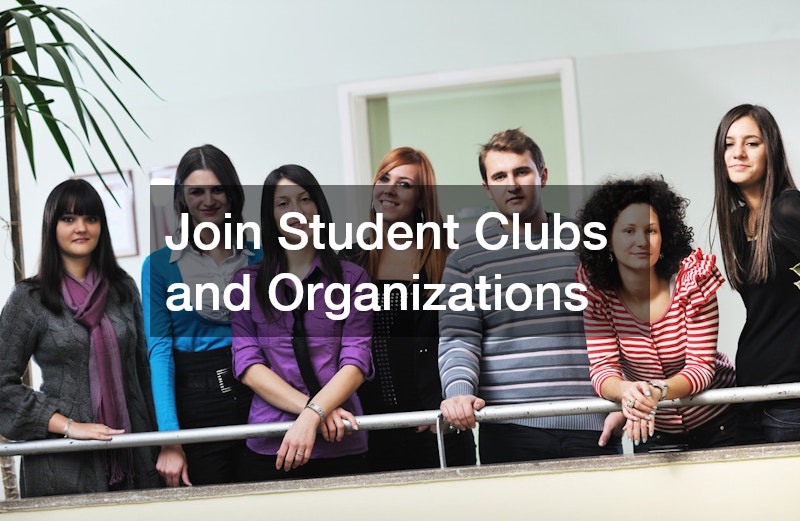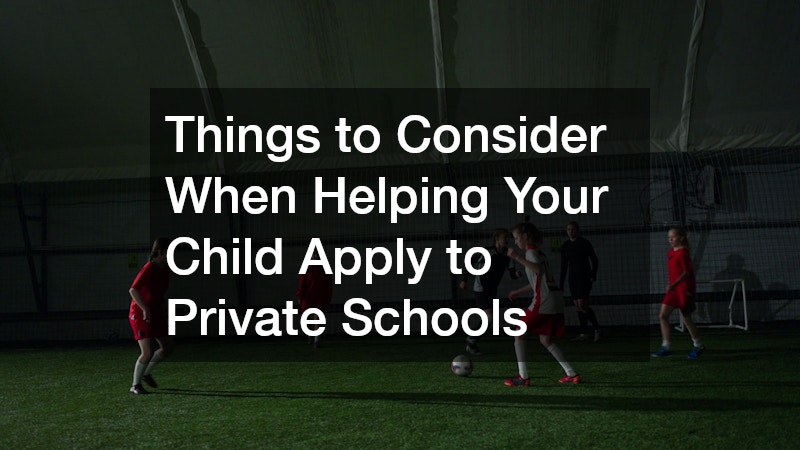The transition from high school to college is one of the most exciting yet challenging phases in a student’s life. It’s a time of newfound independence, academic rigor, and personal growth. However, with this newfound freedom comes great responsibility. Students must learn to balance their studies, social life, and personal safety while setting themselves up for future success. Whether you’re planning to pursue dentistry, engineering, or any other field, making informed decisions early on can have a lasting impact on your future.
This guide provides essential advice for future students, helping them navigate the challenges of college life. From securing your belongings and prioritizing study time to networking with professionals and choosing the right university, each aspect is crucial for a fulfilling college experience. This article also covers important topics such as avoiding alcohol abuse, joining student organizations, and utilizing available resources. By following these recommendations, students can build a strong foundation for both academic and professional success.
Know Your Passion

Choosing a career path is one of the most significant decisions a student will make. For those considering dentistry, it’s essential to assess whether the field aligns with their interests and skills. Dentistry requires precision, attention to detail, and a passion for helping others. Future dental students should explore shadowing opportunities, volunteer at clinics, and engage in coursework that strengthens their understanding of biology and anatomy.
Students should also seek advice from practicing dentists and faculty members to gain insight into the profession. Many universities offer mentorship programs where aspiring dentists can connect with professionals who provide valuable guidance. Understanding the demands of the field early on helps students make informed choices and stay motivated throughout their academic journey.
Furthermore, having a clear vision of your career path allows for better preparation. Enrolling in relevant science courses and participating in pre-dental organizations can help students build a strong foundation. Commitment and perseverance are key, as dental school is rigorous, but the rewards of a fulfilling career in healthcare are well worth the effort.
Developing strong manual dexterity and hand-eye coordination is also crucial for success in dentistry. Engaging in activities such as drawing, sculpting, or playing musical instruments can enhance these skills. Additionally, students should work on their communication abilities, as effectively interacting with patients is an essential part of the profession.
Finally, staying informed about advancements in dental technology and treatment methods can give future dentists a competitive edge. Attending dental conferences, joining professional associations, and keeping up with industry publications will help students stay ahead. A proactive approach to learning and professional growth can lead to long-term success in the field.
Keep Your Belongings Secure
College students often live in dorms, apartments, or shared spaces, making them vulnerable to theft. Keeping personal belongings secure should be a top priority. Investing in a car alarm is a simple but effective way to deter theft, especially for students who commute or keep valuables in their vehicles. Additionally, locking doors and using secure storage options can help prevent losses.
Students should also be cautious when carrying expensive items such as laptops, smartphones, and textbooks. Utilizing a backpack with anti-theft features and being aware of their surroundings can minimize the risk of theft. It’s advisable to register valuable items with campus security, which can aid in recovery if they go missing.
Additionally, students should develop good habits like not leaving personal belongings unattended in public places such as libraries, cafeterias, or study halls. By taking preventive measures, students can avoid unnecessary stress and focus on their studies without worrying about losing important possessions.
One practical step students can take is to invest in small but effective security devices such as combination locks, laptop locks, and personal safes. These simple tools can provide an extra layer of protection for valuables, particularly in shared living spaces where multiple people have access to the same area. Keeping digital files backed up on cloud storage can also help mitigate the impact of stolen or lost devices.
Students should also be mindful of cybersecurity threats. Using strong, unique passwords for online accounts and enabling two-factor authentication can help protect sensitive information. Avoiding public Wi-Fi for transactions or personal logins is another way to reduce the risk of identity theft or data breaches.
Finally, being part of a community that looks out for one another can significantly enhance security. Students should build good relationships with roommates, neighbors, and classmates, encouraging a culture of mutual vigilance. Reporting suspicious activity to campus authorities and staying informed about crime prevention programs can contribute to a safer environment for everyone.
Prioritize Study Time
Effective time management is crucial for academic success. Students preparing for college entrance exams, such as the ACT, should dedicate sufficient time to studying. ACT preparation requires strategic planning, including practice tests, review sessions, and utilizing study guides. By setting a study schedule and adhering to it, students can improve their test performance and increase their chances of getting into their preferred universities.
College coursework is often more demanding than high school, making it important to develop strong study habits early. Creating a quiet and distraction-free study environment can enhance concentration. Many universities also offer tutoring centers and study groups, which can be beneficial for students struggling with challenging subjects.
Balancing academics with extracurricular activities is equally important. While socializing and participating in campus events can be enjoyable, students must ensure that their academic goals remain a top priority. Developing a disciplined study routine helps students achieve their desired grades and prepares them for future career challenges.
One effective way to stay on track academically is by utilizing digital tools such as calendar apps, task managers, and note-taking software. These resources help students organize assignments, set deadlines, and manage their workload efficiently. Keeping a planner or using study apps can provide a clear overview of upcoming exams, projects, and study sessions, reducing last-minute cramming and stress.
Students should also take breaks and maintain a healthy balance between studying and self-care. Overloading on coursework without proper rest can lead to burnout and decreased productivity. Implementing study techniques like the Pomodoro method—where students work in focused intervals with short breaks in between—can enhance retention and maintain motivation. Prioritizing mental and physical well-being ensures long-term academic success.
Avoid Alcohol Abuse

Alcohol abuse is a prevalent issue among college students and can have severe consequences. Driving under the influence (DUI) can lead to legal trouble, endanger lives, and negatively impact academic performance. Consulting DUI lawyers or learning about the legal ramifications can help students understand the risks involved.
It is crucial for students to make informed choices regarding alcohol consumption. Setting personal limits and avoiding peer pressure can prevent dangerous situations. Many universities offer alcohol education programs that provide awareness on responsible drinking and the potential dangers of substance abuse.
Additionally, students should surround themselves with responsible friends who encourage safe behavior. If a situation arises where alcohol is involved, arranging for a designated driver or using rideshare services can prevent accidents and legal troubles. Staying informed and making responsible choices can help students maintain a positive college experience.
Recognizing the signs of alcohol dependency is also essential. If students find themselves drinking excessively or relying on alcohol to cope with stress, it may be time to seek help. Campus counseling centers and support groups such as Alcoholics Anonymous (AA) can provide guidance and resources for those struggling with alcohol-related issues. Early intervention can prevent long-term health and academic consequences.
Finally, students should be aware of the impact that excessive drinking can have on their physical and mental well-being. Alcohol abuse can lead to poor sleep, increased anxiety, and impaired judgment, which can negatively affect academic and personal success. Prioritizing healthy coping mechanisms such as exercise, meditation, and engaging in social activities without alcohol can lead to a more balanced and fulfilling college experience.
Consider Living On Campus
Living on campus can enhance the college experience by providing convenience, social opportunities, and easier access to academic resources. While moving can be stressful, hiring a local mover can ease the transition and ensure a smooth relocation process.
On-campus housing often includes amenities such as study lounges, meal plans, and easy access to faculty members. These factors contribute to a structured and supportive environment, which can help students focus on their studies. Additionally, living in dorms allows students to build connections with their peers, creating a sense of community.
However, students should weigh the pros and cons of on-campus versus off-campus living. While dorm life provides accessibility and social engagement, off-campus housing might offer more privacy and independence. Evaluating personal preferences and financial considerations can help students make the best decision for their needs.
Take Advantage of Student Resources
Many universities offer a wide range of student resources that can make academic life easier. Services such as campus shuttles, tutoring centers, mental health counseling, and career services are designed to help students succeed. Taking full advantage of these resources can enhance the college experience and ease the transition into university life.
Shuttles are particularly useful for students who live off-campus, providing a reliable means of transportation to classes and university events. Many schools also offer academic advising to help students choose the right courses and stay on track for graduation.
By utilizing these services, students can better manage their time, reduce stress, and receive guidance on both academic and personal matters. Being proactive in seeking assistance can make a significant difference in overall success.
Network With Professionals in Your Field

Building a strong professional network is essential for career development. Students studying to be land surveyors, for example, should connect with experienced professionals in the field. Attending industry conferences, joining professional organizations, and seeking internship opportunities can provide valuable exposure.
Networking allows students to gain insights into industry trends, job opportunities, and best practices. Engaging with mentors and faculty members can also open doors to potential career paths.
Additionally, participating in job fairs and workshops can help students develop essential skills for future employment. Establishing connections early on can lead to internships, job offers, and professional growth.
Assess Private vs Public Universities
When deciding on a college, students must weigh the advantages and disadvantages of private and public universities. Private schools often offer smaller class sizes, personalized attention from professors, and specialized programs. However, they can also be more expensive than public institutions.
Public universities, on the other hand, typically have lower tuition costs, especially for in-state students. They also offer a diverse range of programs and extracurricular activities. However, larger class sizes can make it harder to receive individualized attention from professors.
Ultimately, students should consider factors such as financial aid, campus environment, academic programs, and career opportunities when making their choice. Visiting campuses and speaking with current students can help make an informed decision.
Stay Away From Shady Characters
College life presents many opportunities to meet new people, but students should be cautious about who they associate with. Engaging with individuals involved in illegal activities can lead to serious consequences, including arrest and the need for a bail bond.
Understanding the risks associated with crime and making smart choices about social circles can help students avoid legal trouble. Universities often provide safety resources and awareness programs to educate students on how to protect themselves.
By prioritizing safety and surrounding themselves with positive influences, students can focus on their studies and future careers without unnecessary distractions or dangers.
Join Student Clubs and Organizations

Getting involved in student clubs and organizations can enrich the college experience. For students interested in being an optometrist, joining a pre-optometry club can provide networking opportunities, mentorship, and hands-on experience in the field.
Extracurricular involvement also helps students develop leadership skills, build friendships, and enhance their resumes. Many universities offer clubs related to various interests, from professional organizations to recreational groups.
Joining these groups can create a sense of community and provide valuable experiences that contribute to personal and professional growth. Actively participating in student organizations can lead to lifelong connections and career advancement opportunities.
College is a transformative period filled with opportunities and challenges. By following the advice in this guide, students can set themselves up for success in academics, personal growth, and career development. Prioritizing study time, making safe choices, networking with professionals, and utilizing campus resources will help students navigate their journey effectively. With careful planning and responsible decision-making, students can enjoy a fulfilling college experience while building a strong foundation for the future.




